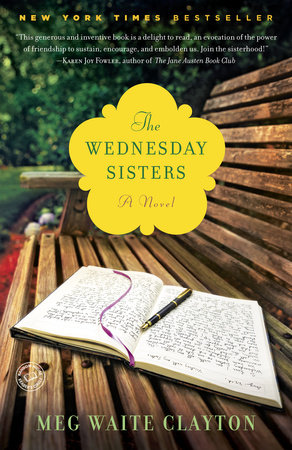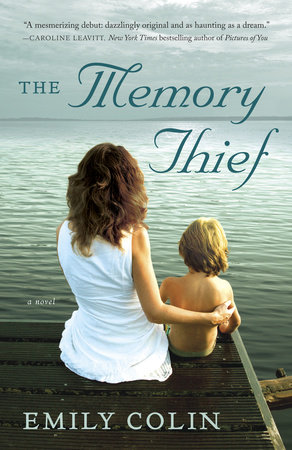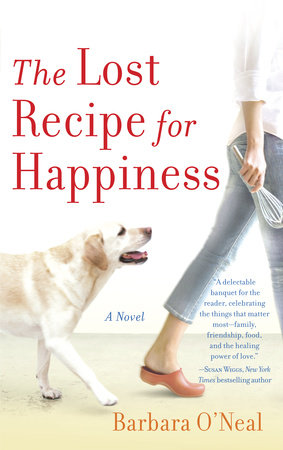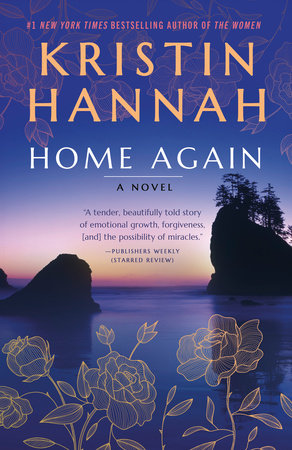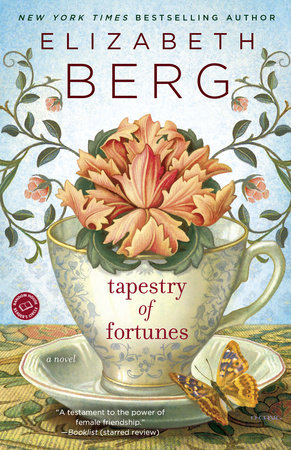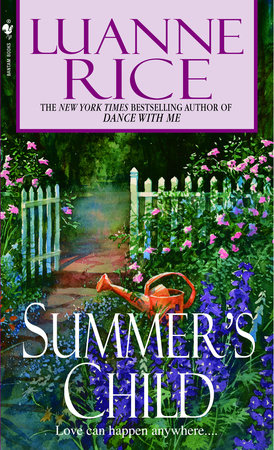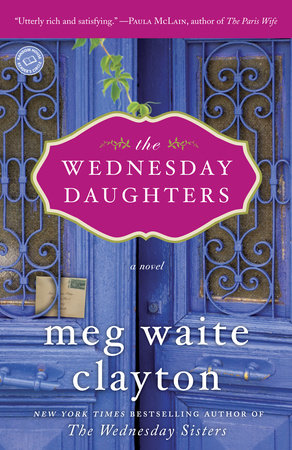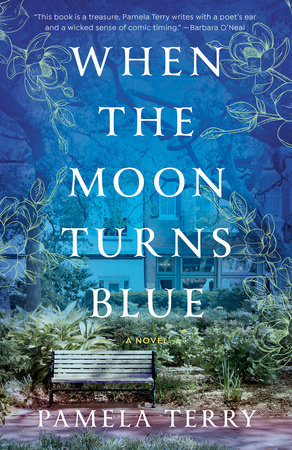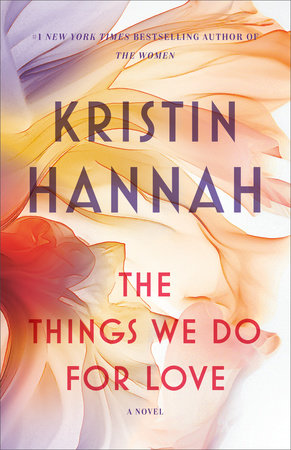A Conversation Between Meg Waite Clayton and Brenda Rickman Vantrease
Meg Waite Clayton and Brenda Rickman Vantrease, author of The Mercy Seller, have been writing partners and close friends for more than a decade. They first met at an open writing group that gathered monthly at a Nashville library, but they really came to know each other as part of a more closely focused splinter group much like the Wednesday Sisters. Their small group met weekly at local coffee shops, commenting on one another’s work and improving as a result, and eventually all four members published articles, essays, and stories. Seven years after this writing group formed, Meg sold her first novel, The Language of Light, and a year later Brenda sold The Illuminator. Although they now live nearly a continent apart, Meg and Brenda continue to critique each other’s work, and the friendship that began in that first tentative sharing of manuscript pages now encompasses every aspect of their lives. Brenda and Meg enjoyed reminiscing about their early work together, reflecting on how friendship inspires writing, and exploring how much of The Wednesday Sisters is drawn from real life.
Brenda Rickman Vantrease: There is so much I love about The Wednesday Sisters–I mean, it’s a beautifully written novel about writing and about friendship, which is as necessary to the human experience as breath. So what is not to love, right? But being a writer of historical fiction, I especially admire the way you integrate the historical setting with the lives of your characters. This story, these characters, could not exist apart from their time and place. That’s not an easy thing to do. What drew you to that time and place? Why the late 1960s? Why California?
Meg Waite Clayton: I wanted to write a novel about women who have dreams for themselves that they are struggling to reach for, that they don’t really begin to reach for until their friends urge them to. I originally set out to write a contemporary story, but I worried that women coming of age today have no great excuse for hesitating to reach for their dreams. We still do hesitate–it’s a scary thing to reach for a dream, because what do you do if you come away emptyhanded?– but women today are open to the charge that we’re just cowards, and it’s hard to make a coward a sympathetic character. If you put those same women in the 1960s, though, when there were real societal barriers to women reaching for dreams . . .
The answer to “Why California?” starts with the fact that I live just a few blocks from the park the Wednesday Sisters meet in, so it was a short walk to see what, for example, the trees look like when I needed to describe them. And the more I poked around, the more I came to realize that Palo Alto in the 1960s was, as a community, divided in a way that paralleled the divide in the country as a whole: it was a fairly conservative community set next to a college with a liberal student body, a dynamic point of contact between the old world and the new. The city council minutes from the time are full of wonderful gnashing of teeth over the hippies taking over the streets, and the newspaper was full of photos and stories about student occupations of university buildings and bombings of local bookstores, and ideas about how the community should be dealing with the chaos. I didn’t have to concoct some scheme to drag the Sisters to a women’s rights demonstration elsewhere because the women’s rights gathering described in the book actually occurred right on University Avenue.
Brenda: Since Kath, Linda, Brett, Ally, and Frankie are in traditional roles as wives and mothers, they are slower to recognize and embrace the evolution in women’s lives that began in the late 1960s and early 1970s. For example, they are reluctant to let go of the Miss America Pageant, and they harbor secret ambitions for which they seem almost ashamed–like Brett’s desire to be an astronaut. They have to be pushed by Linda to attend the feminist rally, sort of tiptoeing into the water as they walk on the fringes of a peace march. We see them being changed by the times, not trying to change the times themselves. Was that a deliberate choice on your part? Did you ever consider including an unmarried woman in the group or a strident, card-carrying feminist?
Meg: The choice of five traditional women was a deliberate one that I think comes out of an “aha” moment I had at Michigan Law School, when my friend Liza Yntema dragged me to see some old class photos in Hutchins Hall, to show me how few women there were in classes not many years before us. I don’t think I had a clue what a difference the women’s movement had made in my life before that. That was definitely something I became more and more interested in exploring as I wrote The Wednesday Sisters: the shift the movement provoked in the way women–many women or maybe even all women, not just those who would call themselves feminists– think of themselves. I wanted to have my characters pretty well settled in more traditional women’s roles when the women’s movement really became visible in part to spotlight the real differences in our lives now: We run marathons. We attend colleges where the doors used to be closed to us. We can support ourselves financially; no one is requiring us to leave our jobs because we’ve gotten married or had children. I think a lot of young women coming of age today–and even those of us who aren’t so young–don’t fully realize how much more restricted women’s lives used to be, or have lost sight of that. I’m guilty of that myself: I remember thinking when Sandra Day O’Connor was appointed to the Supreme Court that it was really cool, but I wasn’t emotionally overwhelmed by the moment. I thought it was something that ought to happen and so of course it had. The same with Sally Ride going into space. I was a lot younger then, and considerably more naïve about how quickly the world changes. By contrast, by the time Nancy Pelosi was sworn in as Speaker of the House, I was basically bawling my eyes out, because that next round of barrier-breaking seemed to take such a long time. I was also interested in exploring the extent to which the way we judge ourselves as women still has some distance to go.
Brenda: You evoke the 1960s so well. Would you say something about your research methods? (You can’t be old enough to remember Johnny Carson!)
Meg: Alas, I was in law school when Johnny retired from hosting The Tonight Show; I used to try to finish studying in time to catch his monologue. The lunar landing happened when I was eleven, so I remember it, too–although admittedly not well enough to deliver the lunar landing scene even after being steeped in the 1960s as a history major at the University of Michigan. I did a lot of research on the particulars, turning to 1960s bestseller lists and fashion photos, articles on the state of medicine, the Olympics, and women’s marches, and Miss America photos and quotes. I read old magazines and talked to people and–this part was really fun–watched the footage of the lunar landing, and old clips of The Tonight Show from the days when Johnny Carson was the host.
What I discovered was that women’s lives were even more limited than I’d imagined: even Stanford had no women’s track team; new mothers were often required to forfeit their jobs; want ads were separated by gender; there were actually men’s-only flights; and my own high school yearbook, when I was a freshman–1972–listed only six girls’ sports teams (no track there, either!), all after the many, many pages of the many, many boys’ teams. I think of myself as coming of age on the other side of the women’s movement from the Wednesday Sisters, but I see in retrospect how long it has taken–and is still taking– for the world to change.
Brenda: While the Wednesday Sisters are women of their time, there is universality in their experiences that transcends the time in which they live, like the love they have for their children, Linda’s breast cancer, Kath’s struggle with her husband’s infidelity, Ally’s desire for children, their awareness of body flaws such as small breasts or big feet. In what ways do you see yourself as different from the Wednesday Sisters? In what ways are you similar?
Meg: Women of the Wednesday Sisters’ generation–my mom’s generation– certainly had more limited choices than women of my generation did, despite the few years between us. It’s one thing to go to law school, as I did, with a substantial number of women students, and another thing entirely to decide you’re going to law school when most schools don’t even admit women and those that do have no more than a handful in each class. Similarly, women just a few years younger than I am, who came of age after Title IX was fully imple- mented, take things for granted that I didn’t: playing soccer, for example, or being able to attend Ivy League colleges and become engineers. But even among our different generations, there are experiences that are universal. We still care deeply about our children: it’s interesting to see how many young women today choose to leave careers to have families. We choose perhaps as badly as we ever have in love, and stay with unfaithful husbands even when we have the financial freedom to leave. Beyond these universal issues, there are other ways in which I am individually very similar to the Wednesday Sisters, little pieces of me embedded in each of them: Linda’s fear–for her children and for herself–is definitely my fear: my mom is a breast cancer survivor and my grandma didn’t survive. Brett’s tortured relationship with her “unfeminine intellect” draws its emotional roots from my inner math-science geek. Kath’s darkest moments draw from a relationship of mine that didn’t end well. Frankie’s self-doubt and her chubby phases are mine, as is her experience with her first novel. Even quiet Ally is me in her middle-of-the-night journey back to the neonatal intensive care unit, where her daughter, Hope, is tethered to life by the same tubes and wires my own son Nick once was.
Brenda: There was one scene–I think I told you this the first time I read it–that was hard for me to read. I can better understand the Kath on the freeway than the Kath who begs her philandering husband for affection. It was painful to watch her humiliation. Was there any scene that was particularly hard for you to write?
Meg: That’s the one scene I point parents to when they ask if the book would be appropriate for their teenage daughters, not because it’s graphic, but because it presents a level of humiliation that I hate to imagine young readers knowing might exist. That was definitely one of the hardest scenes to write, although for me there are at least two scenes that were emotionally harder to write: the scene where Ally goes to the hospital in the middle of the night–because that is drawn from real life–and the scene where Linda tells her children she is going into the hospital, because I suppose my greatest fear is dying before my children could survive my death relatively unscarred.
Brenda: I know you’ve said that the story of The Wednesday Sisters emerged from an image of a woman with a blond ponytail who walked across your field of vision one day. She would later become Linda. How did you birth the other characters? Did anybody else come as easily as Linda?
Meg: All five characters came to me that same morning. I’ve told this story so many times, but I was quite seriously having a pity party for myself and the impending death of my writing career when that woman walked by; then within hours I had the guts of The Wednesday Sisters mapped out in my journal. They really came to me in a gang, all five of them, with Frankie telling their stories.
That having been said, Kath and Linda came more easily than the others. And I had a struggle with Ally and Brett. Even after I sold the novel, my editor suggested merging them into a single character because they were bleeding together. I think–hope–they seem to be very different personalities in the final book, because I put a lot of work into making them distinct. I revised and brainstormed and revised some more. And more. And more. One of the things that I think helped was adding Ally’s mother-in-law, which was a suggestion of a friend of mine from India. I remember reading somewhere that one of the best ways to characterize someone is to show them through another character’s eyes.
Brenda: Let’s talk about friendship and writers. There are probably more examples in literary history of friends who have fallen out over writing than friendships that are strengthened because of it. Our love of writing was the shared interest that brought us together. The Wednesday Sisters seem to discover their common interest in writing after they become friends. They are initially brought together by their loneliness and their children. The discussion about books is more of a conversation opener for Frankie than a desire to form a reading or writing group. Do you think friendship has a positive or negative influence on the kind of feedback writers get from one another in a work group setting?
Meg: I think true friendship is a huge positive for writers. True friends really care about each other, and if you really care about someone, you’re going to do everything you can for them. If they want to improve as writers, what you can do for them is tell them what you honestly think. True friends will speak gently, because they love, but they will also make sure they are heard–again, because they love. And then they will step back and let their writer-friend make his or her own choices, because another crucial element of true friendship is respect.
Brenda: When you’re speaking “gently,” that’s the time I really listen because I know that desire not to hurt comes not just from friendship but a real concern about a problem with the writing.
Meg: I feel the same way. I think those fallings out seem to happen mostly as a result of jealousy, don’t you? You and I–as much as we might envy each other’s successes–have stayed so close because we have been able to draw inspiration from them. I remember when your ad for The Illuminator appeared in The New York Times Book Review. Have I ever told you this? I taped it onto the glass on a framed photo hanging on the wall of my office right beside my desk. I still have the ad, although I’ve moved it to my middle desk drawer now. But I used to look at it and think, Dang, Brenda can do it and I know she’s only human, so maybe I can, too.
Brenda: I felt the same way when you were the first to sell a novel. I was a little jealous–okay, a lot jealous–but at the same time I was so happy for you. I knew how hard you’d worked on that book, writing and rewriting to get it just right. You’d worked harder than any of us, and you deserved to be the first. And when I held that book in my hand, I teared up with a fierce pride not only in you but in us. It was a shot of mental adrenaline. I was determined that you might be the first, but you wouldn’t be the only.
Meg: It still kind of amazes me that our books sit together on my bookshelf–and with Leslie’s book now, too [Leslie Lytle, Brenda and Meg’s fellow writing group member]. One of the nicest afternoons I’ve ever spent was that day we visited Nashville bookstores together and signed our books.
Brenda: We used to meet over coffee each week and faithfully exchange manuscripts and ideas with a seriousness that would indicate we thought we would someday actually write something that somebody else would not only want to read but pay to read. I’ll confess it all seemed like an impossible dream to me, but I was enjoying the process and the dream. However, I always had the sense that you were sure it was going to happen. Was that true? Where did that confidence come from?
Meg: Don’t tell my poker gang, but I bluff well in poker, too. Honestly, I don’t know that I was any surer it would happen than you were, Brenda. What I was sure of was that if it didn’t ever happen, it wasn’t going to be because I hadn’t tried as hard as I could. I actually went through a period–inspired by Scott Adams, who draws the Dilbert cartoons–where I would write in my journal “I will get my novel published” not just once, but fifteen times every day. It was good for me, because it kept me focused on the future, on the possibility that I could reach that dream. Almost everyone I know who has been published–including you!–has a long history of sticking to it when no sane person would continue to do so.
Brenda: Now that that dream has come true what has been the most surprising thing you’ve learned? What have you learned that you wish you had known when we were so earnestly swapping pages and picking one another’s brains for tips on the most effective query letter, the best kind of opening line, the appropriate point of view?
Meg: I think the most surprising thing has been how much better I’ve come to know myself through my writing. And I wish I’d known to hold tightly to the story I wanted to tell. I’ve come to see that’s where my best writing comes from, but there were definitely times along the way where I was so intent on being published that I lost my center in trying to please.
And I suppose I wish I’d really understood that flawed characters are more compelling than perfect ones, that sometimes the most grammatically correct sentence isn’t the best one, and that point of view is richer and more complicated than I once thought.
Brenda: Speaking of point of view, this seems to be a real pitfall for some writers. I know you have experimented with other points of view but in the end chose to have Frankie narrate all of the Sisters’ stories. Can you tell us a little bit about why you chose her point of view?
Meg: When I first began imagining the story, it came to me in Frankie’s voice. I spent a lot of time poking around looking at points of view in the early stages, though, because I had these five stories to tell, and Frankie wasn’t going to be, for example, in Kath’s and Lee’s bedroom; a traditional first-person point of view wasn’t exactly going to work. But maybe because my storytelling roots are in listening to my family tell stories on itself, I feel much more comfortable in first person. Honestly, even the third-person stories I’ve published have for the most part been written in first person and then converted to third. So I finally decided that, because it’s retrospective and because these are friends who are so close that they know one another’s stories well enough to tell them even if they weren’t there every moment, I could get away with Frankie narrating scenes she isn’t in–even that awful Kath bedroom scene. It allows me the benefit of one unifying narrative voice, and yet it also allows me to tell all the stories from a very intimate point of view.
Brenda: I have always envied your energy and discipline as a writer. Would you say something about your writing process, for instance, your typical routine?
Meg: Two thousand words or 2:00 p.m. when I’m writing a first draft. I sit down to write at 8:00 every morning, and if I’ve got 2,000 words by 9:30, I can do whatever I want for the rest of the day. But if I have 2,000 words even by 2:00, I’m reluctant to get up from that chair, because that’s a really good writing day.
I do sit down to write each weekday morning almost as surely as if I had to punch a clock. I figure what I lack in talent maybe I can make up in discipline.
Revision is the sweet spot of writing for me, where the awful cocktail party at which I know not a soul starts feeling more like a gathering of friends. I go through draft after draft. I’m only guessing, but I’d say at least twenty for The Wednesday Sisters. I did an entire draft focused on making Brett and Ally more memorable. I did a dialogue draft, looking only at dialogue to make sure each of the five characters’ voices is distinct. And each draft isn’t necessarily better than the last, either. At one point for this novel, I returned to a draft from six months earlier, did a redline of all the changes since and– starting from the earlier draft–picked the few good changes and left everything else on the cutting-room floor. I’d like to think there is a more efficient way to write, but it seems I sometimes have to go down a wrong road far enough to see it’s a dead end before I can find the open path.
Brenda: I’m almost as excited about your next book, The Ms. Bradwells, as I am about my own third novel. I wish you were here so we could workshop both of them over coffee the way we used to. I know your new one is a friendship story, too. Can you tell us a little about it?
Meg: I like to call The Ms. Bradwells my “law school story” to make my pals from law school nervous, though in fact it’s about four women who first meet at the University of Michigan Law School a few years before our class was there. I’m in the early stages, so I’m less articulate than I’d like to be on the subject of what it’s “about,” but my explanations tend to include the terms “friendship,” “motherhood,” “that first wave of women entering historically male professions in substantial numbers,” and “the consequences of the choices we make.” The four friends in the story–Betts, Lainey, Ginger, and Mia–come together years after their law school graduation, expecting to spend a long weekend celebrating Betts’s appointment to the D.C. Court of Appeals. But a question raised at her confirmation hearing about an unexplained death during their law school days sends them fleeing to an isolated Chesapeake Bay island family home Ginger has just inherited from her mom–the very place where the death occurred. Over the three days they spend together, the friends reconsider the truths they may have buried in the wake of that death. They also begin to make sense of the very different career and life choices each has made in the intervening years, the effects their mothers’ dreams and expectations have had on who they have become, and the world their daughters will inherit from them.
At least, that’s what I think it is going to be about. I do look forward to having you read it, though, as I always learn so much about what I’m really writing–as opposed to what I think I’m writing– from your critique!
